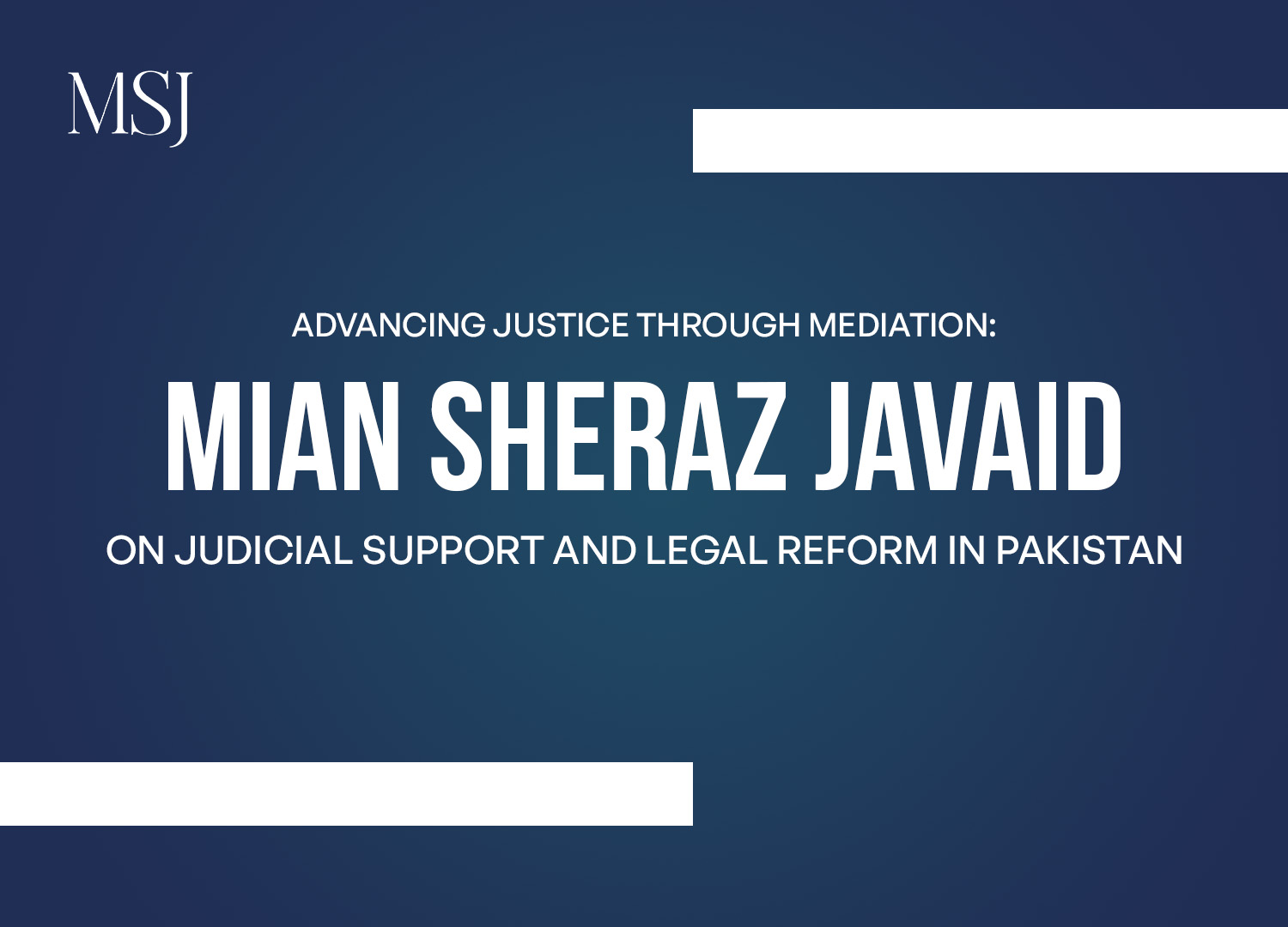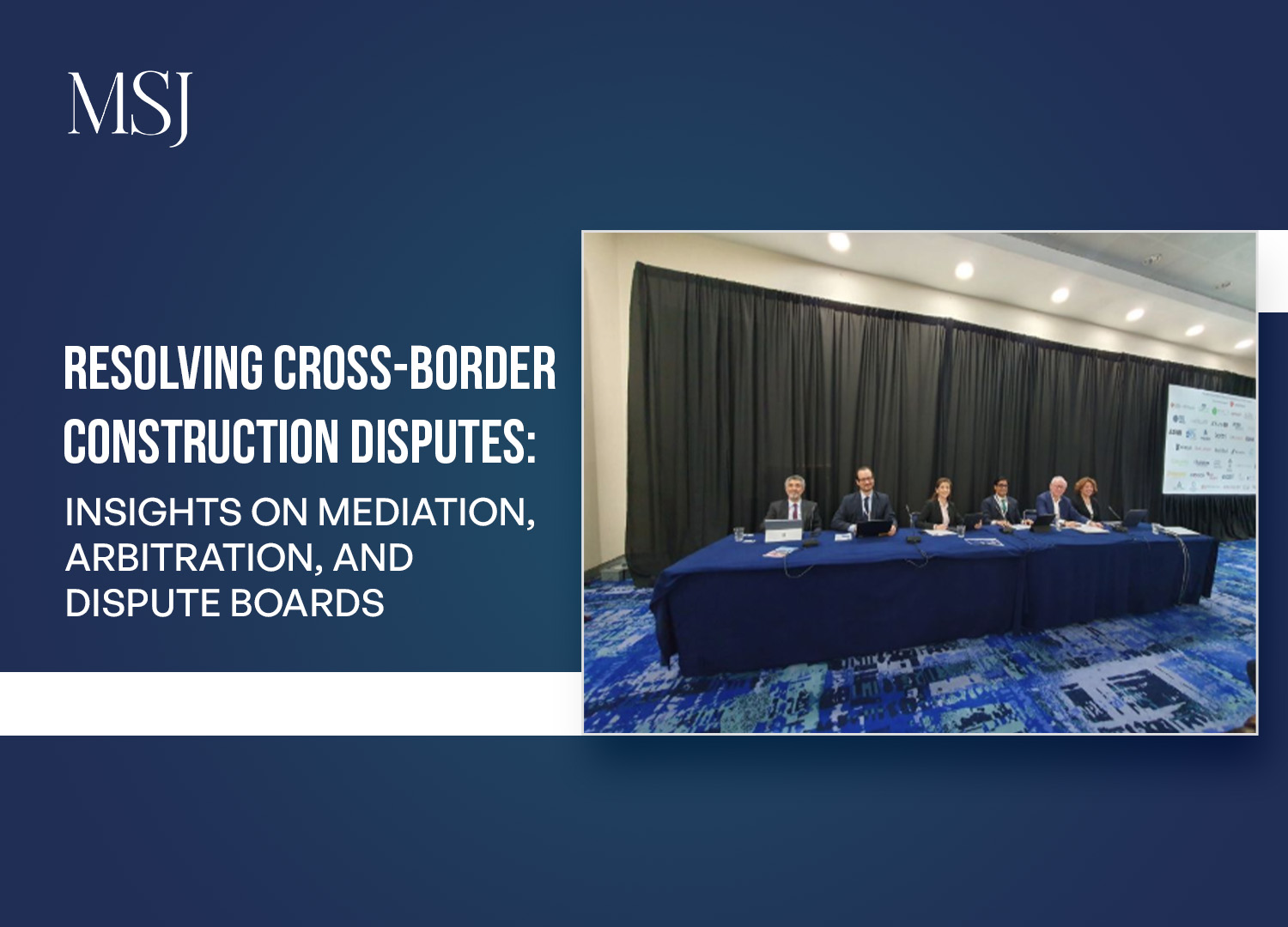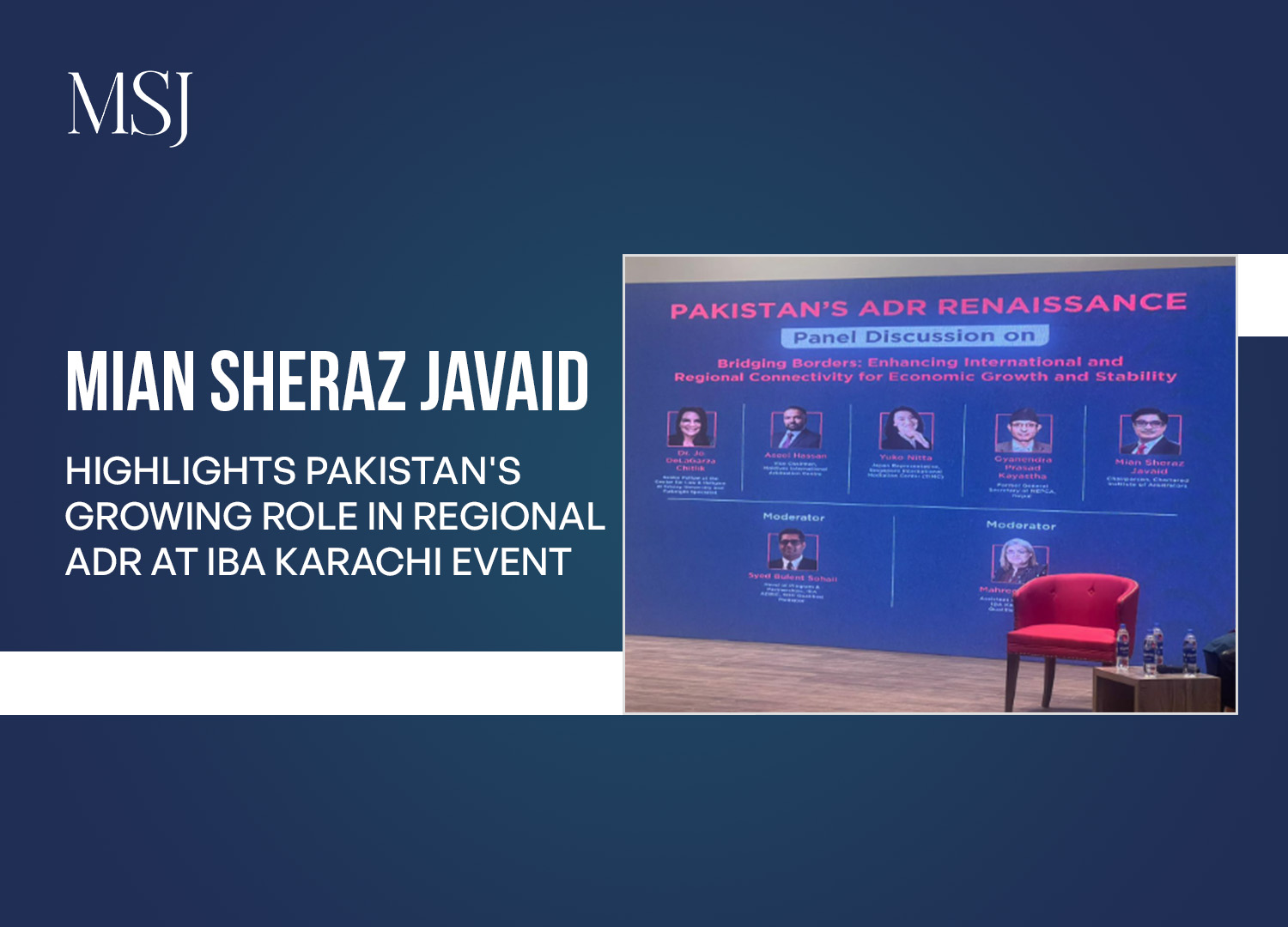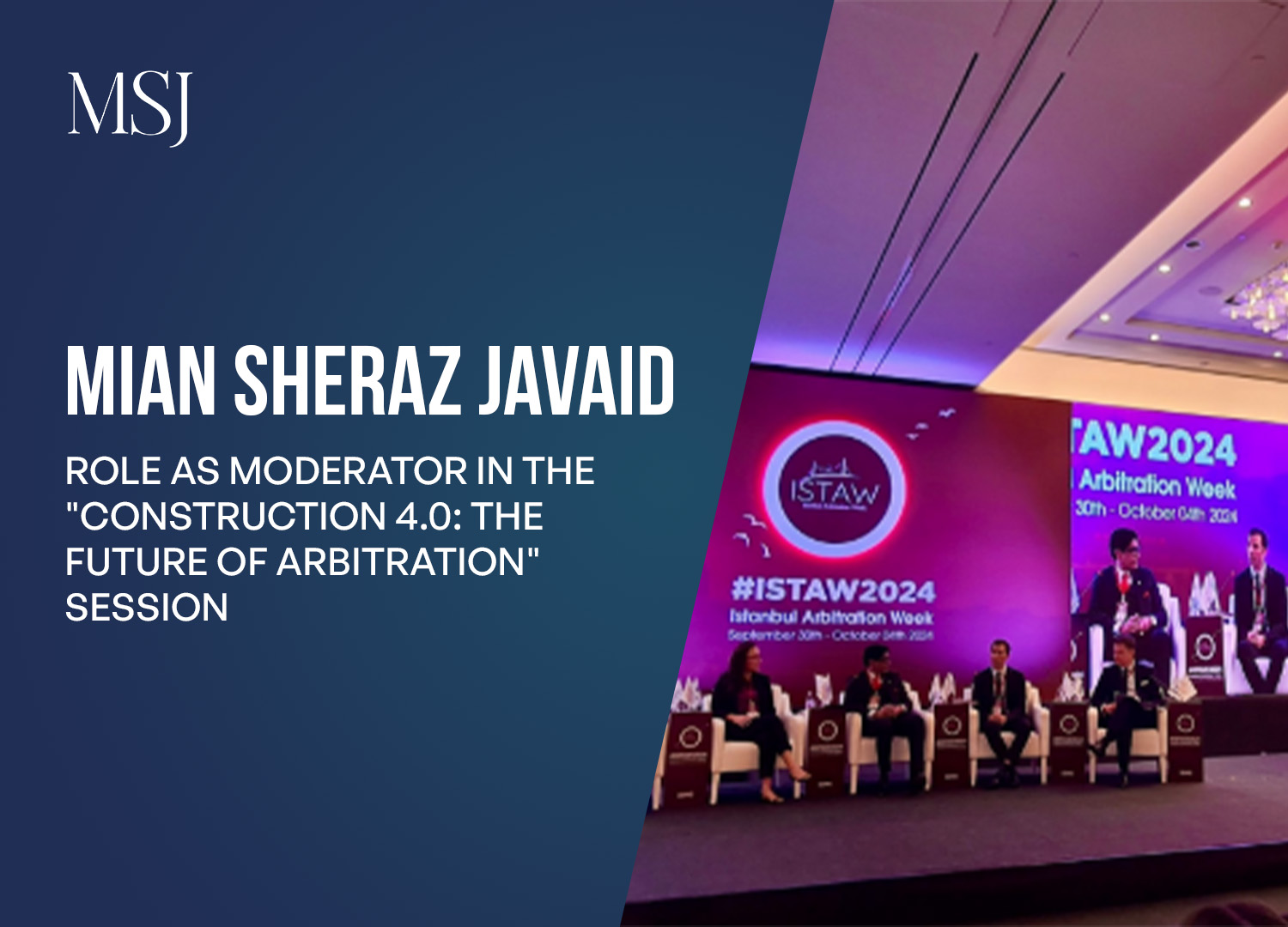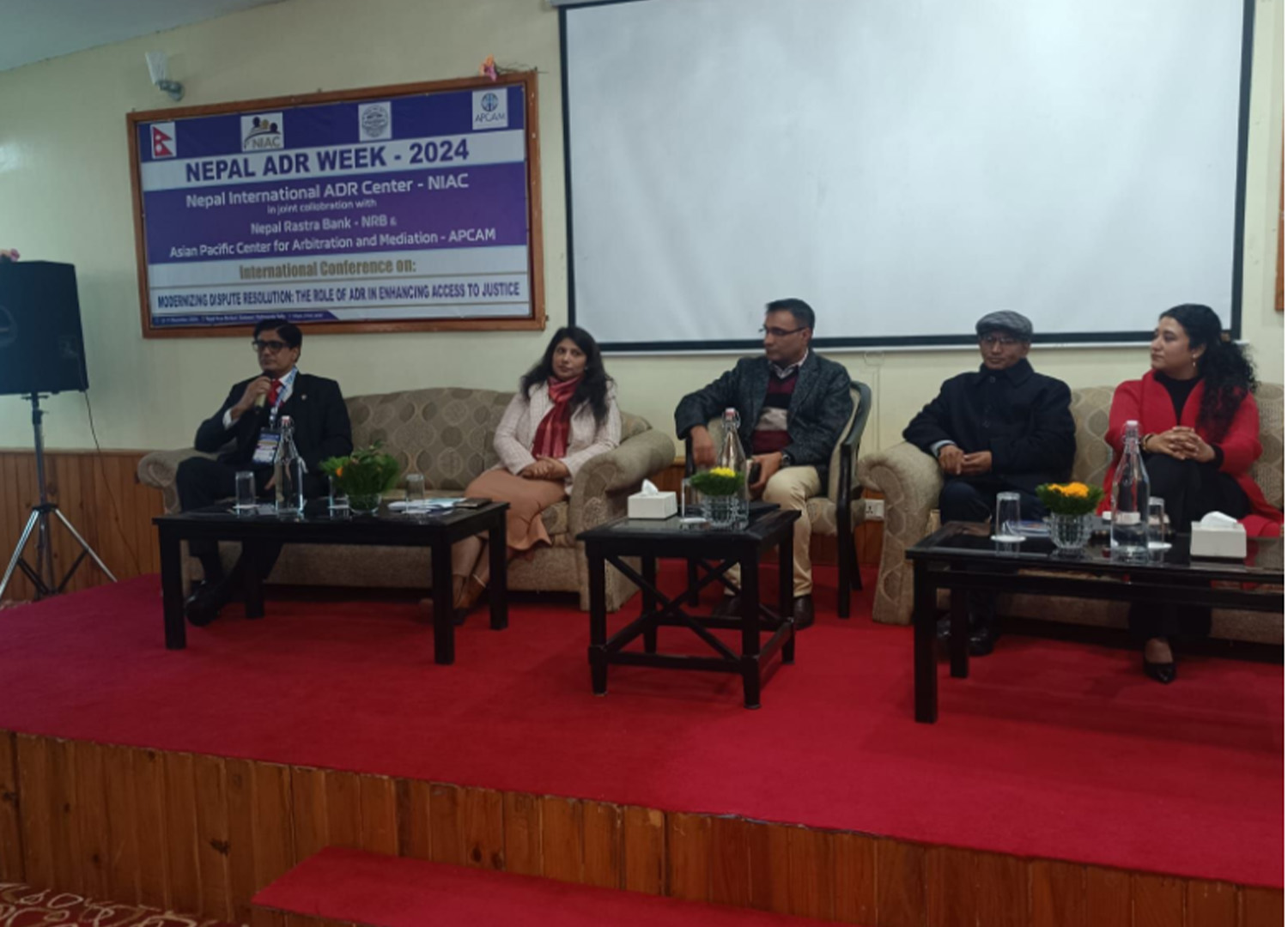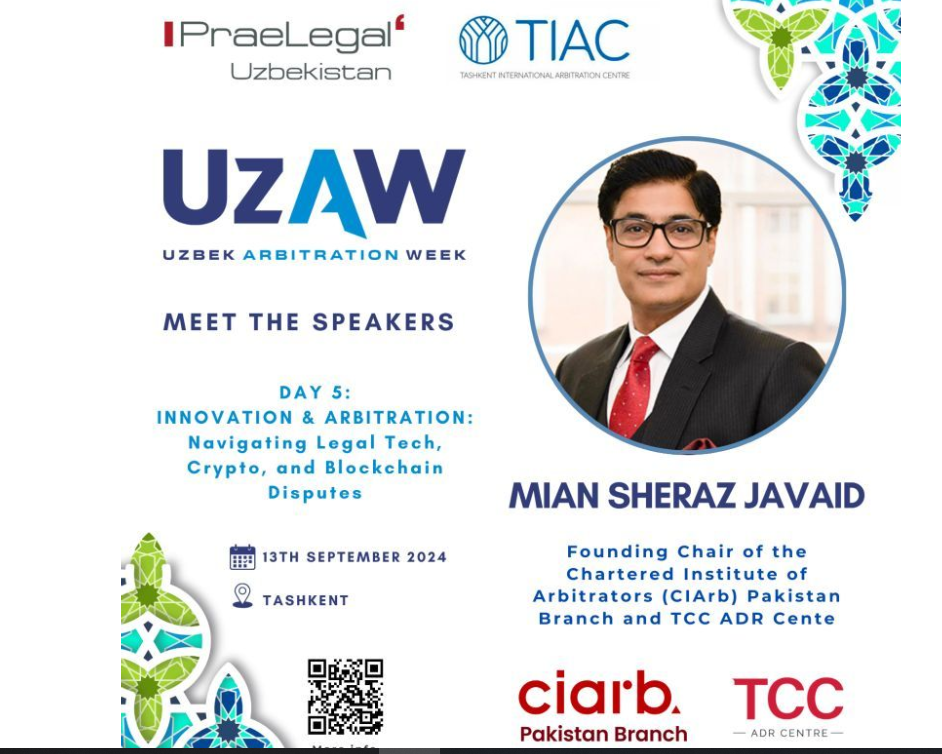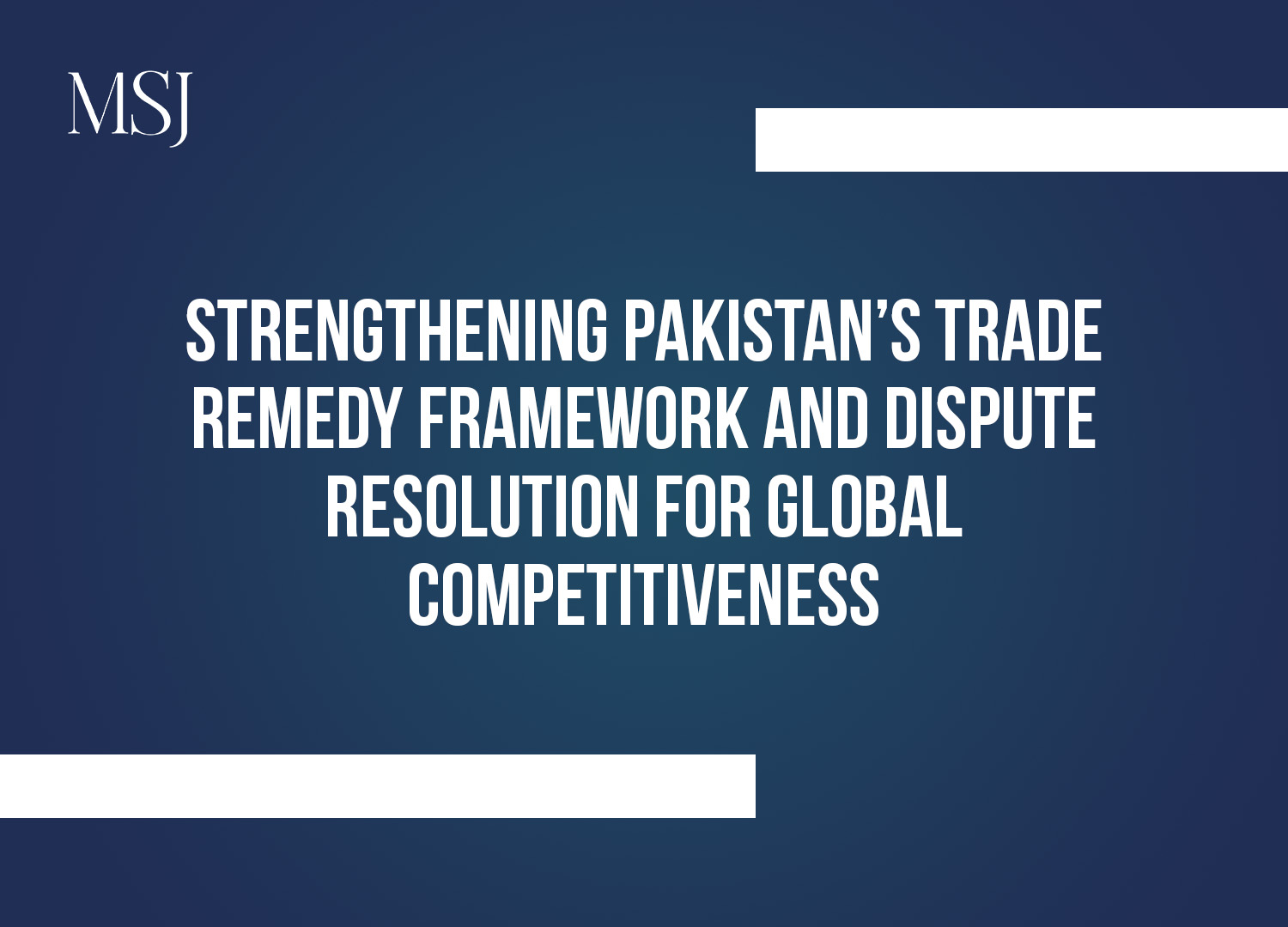Mian Sheraz Javaid Delivers a Keynote Speech at ICMA Pakistan Seminar
Mian Sheraz Javaid was one of the keynote speakers on a seminar organised by the TSPD Committee of Institute of Cost and Management Accountants of Pakistan (ICMA Pakistan) in collaboration with Khawaja and Kamal. The seminar dealt with Alternative Dispute Resolution Having Specific Perspective of Mediation and the role of Early Neutral Evaluation. Alongside Sheraz, the panel of keynote speakers included Honorable Mr. Justice Jawad Hassan, Honorable Mr. Justice Miangul Hassan Aurangzeb, Honorable Mr. Justice Sardar Ejaz Ishaq and Shehzad Ahmed Malik, President ICMA.
BACKGROUND OF ADR IN PAKISTAN
Sheraz stated that traditionally, district, high, and supreme courts were the principal courts in Pakistan to decide on the matters. However, the growing complexity of the cases led to a significant number of cases before the courts, causing the courts to get burdened, leading to the accumulation of 2.2 million cases in Pakistan. This is hampering the ability of the legal system to provide justice within the due time and frustrates the people. As a solution, Sheraz proposed that ADR could lighten this burden significantly by providing alternative, more efficient routes for dispute resolution outside the formal judicial system. Mechanisms of ADR, he suggested, provide parties with a quicker and more cost-effective way to settle disputes; this is crucial for the improvement of the overall efficiency of the legal system.
He further explained how ADR has already started sprouting in Pakistan, mostly as a response to the growing demand for effective conflict resolution mechanisms. During the last couple of years, Pakistan has shown a remarkable change by incorporating ADR into its legal framework, thereby changing the way it approaches dispute resolution. This shift, according to Javaid, is a reflection of the global trend of embracing ADR, with both developed and developing nations recognizing the importance of offering alternative dispute mechanisms to alleviate the pressure on courts. He noted that ADR has been instrumental in reducing the burden on judicial systems globally and has played a significant role in promoting peace, efficiency, and stability.
DEVELOPMENTS OF ADR
One of the most notable developments in Pakistan's ADR landscape is the enactment of progressive legislation to formalize and promote ADR practices. Two key pieces of legislation, Sheraz specifically pointed to the Punjab Alternative Dispute Resolution Act 2019 and the Domestic Arbitration Act 2023. The introduction of these legislative measures, Sheraz argued, reflects the country's commitment to creating a more business-friendly environment by providing a structured and reliable framework for arbitration and dispute resolution. He referred to the Domestic Arbitration Act 2023 as an effort to modernize and make arbitration easier by incorporating globally accepted provisions, so the country's arbitration laws do not lag behind the world's best practices. He wants the law to be framed such that it not only provides a speedy and efficient mode of resolving disputes but also helps increase Pakistan's attractiveness as a jurisdiction for both domestic and international arbitration. According to him, modernization of its arbitration laws will bring in more investors and businesses into Pakistan seeking reliable and efficient modes of dispute resolution.
GROWTH AND SUPPORT OF ADR IN PAKISTAN
Notably, the judiciary has been at the forefront of supporting ADR; Sheraz mentioned several judgments by the Supreme Court and Rawalpindi Bench, which have shown growth in the judiciary's positive endorsement of ADR. For instance, in Taisei Corporation, Justice Mansoor Ali Shah issued the judgment, which marked a remarkable change in the judicial attitude towards arbitration. Sheraz emphasized a point in the judgment wherein the court maintained that it is not competing with the arbitral process but complementing and assisting it. According to Sheraz, this statement brings about a paradigm shift where courts look at arbitration. It affirms the notion that courts are there to facilitate and support arbitration rather than create obstacles for it to function effectively. This shift is important for creating an atmosphere where arbitration, especially international arbitration, can flourish and be legitimized as a sound instrument of dispute resolution.
Moreover, Sheraz referred to a judgment of Justice Jawad Hassan in the case of F.M.O. v. Morgah Valley Limited wherein the Lahore High Court took a bold stance by supporting the referral of disputes to mediation. In this ruling, the Lahore High Court supported the referral of disputes to mediation, which was in line with global best practices, according to Sheraz. He cited a similar United Kingdom case, James Churchill v. Merthyr Tydfil, to show international courts' growing support in using mediation as a dispute-solving process. Sheraz told me that this decision is really showing the growth of perception towards mediation as an option which is viable and equally effective as litigation.
The second notable case discussed by Sheraz was the CWE v. NHA, wherein Justice Maingul Hassan Aurgangzeb made a decision relating to the enforcement of an interim DAB award. This was celebrated by Sheraz as one of the landmark developments in the realm of ADR in Pakistan, particularly concerning infrastructure where disputes abound and often prove to be complicated. The Islamabad High Court, by recognizing and enforcing an interim DAB award, has set an important legal precedent that reinforces the importance of adhering to the decisions of Dispute Boards. According to him, this decision is essential for fostering confidence among foreign investors and contractors operating in Pakistan, especially in large-scale infrastructure projects. By enforcing DAB decisions, the court has validated the role of ADR in project management and dispute resolution, thus supporting cost efficiency and timely completion of projects.
Sheraz also highlighted Ciarb Pakistan and other institutions' roles toward building a culture of ADR in the country. He drew attention to the work done by Ciarb in terms of training and capacity-building programs, including the first-ever internationally accredited mediation training held in Pakistan in collaboration with Islamabad High Court and Federal Judicial Academy in 2022. This, according to Sheraz, was an important step towards qualified neutrals and courts annexed mediation centers with the first already successfully operating in Islamabad.
CONCLUSION
In conclusion, Sheraz expressed his optimism about Pakistan’s future in ADR and its growing international recognition. He commended the nation for its ongoing efforts to improve its legal and arbitration framework and underscored the pivotal role that ADR will play in shaping the future of Pakistan’s legal system. With the support of the judiciary, progressive legislation, and institutions like Ciarb, Sheraz concluded, Pakistan is well-positioned to become a global leader in ADR practices, providing a reliable and efficient platform for dispute resolution. He expressed hope that the country would continue to build on this momentum and pave the way for a future where ADR is not just an alternative, but the preferred method of resolving disputes. He also thanked the event organizers for the opportunity to speak and reiterated his commitment to helping shape the future of ADR in Pakistan.


